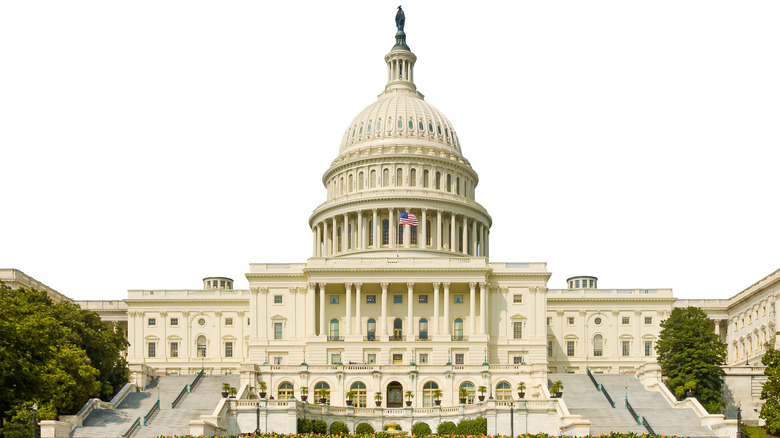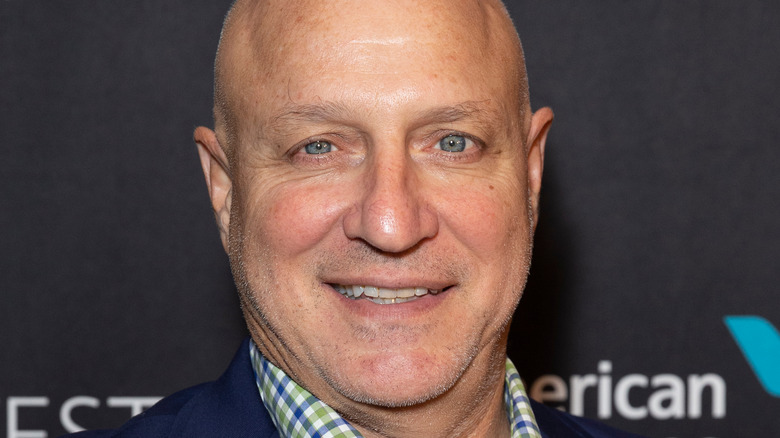Restaurants Were Just Delivered A Big Blow By Washington, DC
On March 8, Congress finalized the omnibus, or the federal government spending bill for much of the rest of 2022, that will be up for a vote on March 11 (via CNN). The budget does not include additional resources for the Restaurant Revitalization Fund (RRF), which spent its initial sum of $28.6 billion within weeks of its creation, per Restaurant Business. The fund was established to provide financial relief to restaurants during the pandemic.
On Twitter, Roll Call senior congressional reporter Lindsey McPherson said she learned from Ben Cardin, chair of the Senate Small Business & Entrepreneurship Committee, that some members of the Republican party opposed the funding. Cardin said that efforts to provide restaurants with additional funding are not over yet. "If we can bring it to the floor as a separate bill, we might do that. We're not giving up," he said.
Congress' decision was made despite lobbying conducted by the Independent Restaurant Coalition to reinvigorate the RRF, reports ABC News. While coalition co-founder Tom Colicchio said the organization was grateful for the government's initial attempt to keep restaurants and bars afloat during the early days of pandemic, it notes that nearly 200,000 businesses that applied for funding have not received any. Of those businesses, 80% face a permanent closure, which puts millions of jobs at risk.
The initial round of funding had problems, Tom Colicchio says
Talking to The Daily Beast, Tom Colicchio explained that part of his pessimism about the restaurant industry's future stems from a lack of adequate emergency funding from the government. While the restaurants that received RRF money benefitted tremendously, the ones that were left out have suffered a real "competitive disadvantage." "If the guy down the street got a million bucks, they can offer more salary, they can renovate, they can do things," the "Top Chef" judge said. "Whereas if you didn't get the money, you're kind of screwed."
The uneven nature of these grants becomes more obvious when you look at the recipients. The largest amount of relief a company could get from the RRF was $10 million. When Nation's Restaurant News looked into who got that $10 million, they found that 67 businesses profited, including food services within Disney World, Apple's corporate caterer, and eight companies that service airports and sports stadiums. Meanwhile, many independent businesses were left out of the granting process. Well into 2022, Restaurant Business learned that there is "a feeling among many lawmakers that the [food and beverage] industry had already weathered the worst of the pandemic." Those opposed to Congress' recent spending decision say that the feeling among many small business operators is quite the opposite.

